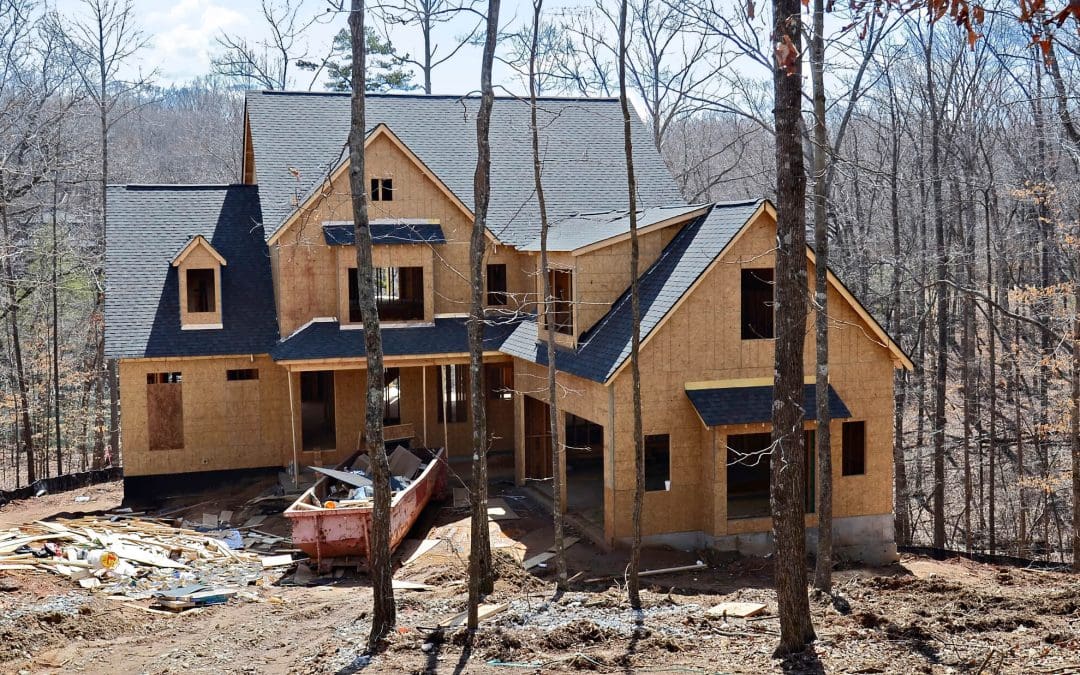New construction projects, whether residential or commercial, are expected to meet high quality and safety standards. However, construction defects can occur even with meticulous planning and skilled labor, leading to potential legal disputes and financial losses. This blog post explores the common types of new construction defects, their causes, and how to address them.
Common Types of New Construction Defects
1. Structural Defects: Structural defects are among the most serious issues in new construction. They can compromise the integrity of the building and pose significant safety risks. Common structural defects include foundation cracks, framing issues, and improper load-bearing designs. These problems often stem from inadequate soil analysis, poor engineering, or substandard construction materials.
2. Water Intrusion: Water intrusion is a prevalent defect that can lead to severe damage if not addressed promptly. This issue occurs when water penetrates the building envelope, causing mold growth, wood rot, and deterioration of structural components. Common causes include improper waterproofing, faulty roof installations, and poorly sealed windows and doors.
3. Mechanical and Electrical Failures: Defects in mechanical and electrical systems can disrupt a building’s functionality and safety. Issues such as faulty HVAC systems, inadequate electrical wiring, and plumbing leaks are common in new constructions. These problems often result from poor workmanship, incorrect installations, or non-compliance with building codes.
4. Finish and Aesthetic Issues: While not as critical as structural or mechanical defects, finish and aesthetic issues can significantly impact the value and appeal of a new construction. These defects include uneven paint, poor tile installations, and misaligned fixtures. Such problems usually arise from rushed work, lack of attention to detail, or use of inferior materials.
Causes of New Construction Defects
1. Poor Workmanship: One of the leading causes of construction defects is poor workmanship. The work is often subpar when contractors and laborers do not adhere to established construction standards and best practices. This can be due to a lack of training or oversight or simply cutting corners to save time and costs.
2. Inadequate Planning and Design: Defects can also originate from inadequate planning and design. If architects and engineers do not account for a project’s specific needs and conditions, the construction may suffer. Issues such as improper load calculations, insufficient drainage plans, and inadequate material specifications can lead to significant defects.
3. Substandard Materials: Another common cause of construction defects is using substandard or inappropriate materials. Builders might opt for cheaper materials to reduce costs, but this often compromises the quality and durability of the construction. Materials that do not meet industry standards can result in premature failures and safety hazards.
4. Environmental Factors: Environmental factors can also contribute to construction defects. Conditions such as extreme weather, soil movement, and natural disasters can impact a building’s integrity. Failure to consider and mitigate these factors during the planning and construction phases can lead to significant issues.
Addressing Construction Defects
1. Thorough Inspections: Regular and thorough inspections are crucial in identifying and addressing construction defects early. Inspections should be conducted at various stages of the construction process to ensure compliance with building codes and standards. Hiring third-party inspectors can provide an unbiased assessment of the construction quality.
2. Legal Recourse: When defects are discovered, legal recourse may be necessary to resolve disputes and seek compensation. Builders, contractors, and homeowners should know their rights and responsibilities under local construction laws. Consulting with a construction attorney can help navigate the legal complexities and ensure a fair resolution.
3. Remediation and Repairs: Once defects are identified, prompt remediation and repairs are essential to prevent further damage and ensure safety. The remediation process might involve correcting structural issues, replacing defective materials, and improving workmanship. Hiring qualified professionals to perform these repairs is crucial to restoring the integrity of the construction.
New construction defects can pose significant challenges, but understanding their causes and solutions is the first step in addressing them effectively. By prioritizing quality workmanship, proper planning, and regular inspections, stakeholders can minimize the risk of defects and ensure the longevity and safety of their constructions. Whether you are a homeowner, builder, or contractor, staying informed about common construction issues is key to successful and defect-free projects.
FAQs for New Construction
How can I ensure the quality of the materials in my new construction home?
Request a list of materials and suppliers from your builder, visit other homes they’ve built, and consider hiring an independent inspector to verify the quality of materials and workmanship.
Are there any hidden costs associated with buying a new construction home?
Hidden costs include upgrades, landscaping, homeowner association (HOA) fees, and post-move expenses like window treatments and appliances. Ensure you budget for these potential costs.
What warranties are typically included with a new construction home?
New construction homes often come with warranties covering structural defects, major systems (HVAC, plumbing, electrical), and finishes. Depending on the coverage, these warranties can range from one to ten years.
What should I look for when choosing a builder for my new construction home?
Look for a reputable builder with a strong portfolio, positive customer reviews, proper licensing, and membership in professional associations. It’s also beneficial to visit completed projects to assess quality.
SC Property Inspections offers home inspections in the Lowcountry of South Carolina. Contact us to schedule an appointment for our services.

